Romania’s nurses stick close to home
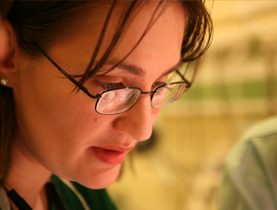
Romania's nurses don't earn much and although they can work almost anywhere in Europe, better salaries may not be enough to lure them away from home.
The former Eastern Bloc country of 22 million inhabitants seems an ideal picking ground for cheap medical professionals for Switzerland.
And it could be, if voters choose to extend a labour agreement with the European Union to new members Romania and Bulgaria on February 8.
“I think they want to stay in the country but they are not very well paid here. And the work is not so easy,” says Lamise Bectemir, the head of the paediatric oncology ward at the Marie Curie Children’s Hospital in Romanian capital, Bucharest.
There is a great wealth disparity here. The problem for Bectemir and others who consider themselves part of the middle class is that relatively meagre salaries don’t translate into low costs of living. Nurses in Romania earn between €500 (SFr750) and €1,000 per month.
At a McDonald’s restaurant a few minutes from the hospital, a hamburger meal costs around 18 lei, or roughly SFr6.50 ($5.60).
That’s less than half the price of the same sandwich, French fries and soft drink in Switzerland, but for the city’s nurses it is a relative luxury. They could earn up to five times more in a Swiss hospital.
Romania’s wages are an expression of the country’s ongoing growing pains almost two decades after the collapse of Nicolae Ceauşescu’s communist regime.
For all the talk of new money in Eastern Europe, Bucharest’s buildings cast a weary shadow and its prodigious boulevards and traffic circles – crumbling edifices to the former dictator’s brand of grandiose totalitarianism – teem with a few luxury trucks and many more of the modest Dacias, the national everyman’s car.
Not coming
As it turns out, Lamise Bectemir, a woman in her late 30s who speaks nearly flawless English, is unlikely to join a supposedly impending wave of Eastern Europeans into Switzerland, as the country’s rightwing activists predict.
She spent time in the United States in 1997 but returned home because she wanted to raise her son, now a teenager, in Romania. Despite the difficulties associated with her job here, she never gave much consideration to working elsewhere.
“I think it is too hard to adjust to a new system,” she told swissinfo.
“I haven’t tried in Europe. I don’t know German. French, a little but it’s not so easy to learn. I don’t think it’s very good for Romanian people to work in England or Scotland.”
Bectamir and other nurses hear horror stories from colleagues who have ventured abroad. “Some of the nurses were in England or Italy and thought they were seen as slaves and were treated very badly,” she says.
It’s easy to see that the nurses who have stayed are after something more than better wages.
“I love Romania and I want to stay here, near the family,” says Illiana Vlad, a nurse of six years. Young and unmarried, she says she is open to the possibility of spending some time outside the country.
“Everyone wants to be paid more,” she says, but emphatically insists it would be a temporary move, to build up savings for a more comfortable life. “The dream will be finished and realised here in Romania.”
Retaining talent
Five floors down, Daniel Bazatu, the hospital’s manager, offers some coffee and a cigarette and seems bemused at the fuss in Switzerland.
“You are afraid of a wave of medical personnel flooding Switzerland?” he asks in Romanian. “You don’t have to be afraid because you are not in danger. Nobody threatens you.”
Radu Tabacaru, a 44-year-old anaesthesiologist and the hospital’s medical director, has been practising for 15 years and has worked in France and Israel.
“I do not see a threat from your point of view because those who will attempt to work and live in your country must comply with your way of being. It is a general rule – not only for Switzerland but for any country.”
Tabacaru says many of his colleagues have left for France but that life in Romania is acceptable.
“I am satisfied with my work here. For the moment, I earn sufficient money. Not very much but I have a decent level of living and I feel okay here.”
“Regarding nurses, we have a huge shortage in the labour force, mostly because of poor incomes,” he says. Tabacaru bemoans the rigid, state-regulated salary structure which he argues makes it difficult to retain talent. “We give them the maximum amount of money but even that is not always sufficient.”
He is confident conditions will progress, but at a modest pace. The system has “steadily improved during the last ten years and the trend is good, not very good but the slope is ascending”.
“I love this country”
On the oncology ward, the mother of Nöel, a young boy recovering from leukaemia, weighs in: “We have children here. If everybody goes out…”
She works as a Spanish teacher near Bucharest and says she is aware that the migration of Romanians is a contentious issue in Switzerland. However, she too makes the point that she would rather stay home. “I love this country. I was born here, God [put] me here.”
She admits her country needs to improve its image in other parts of Europe but when prompted about the care her son has received, she has only kind words for the nurses. “They are good. With these conditions, very good.”
For Nöel’s mother, the medical professionals her government can barely afford to pay are the ones it can least afford to lose. But the global financial crisis is producing ramifications for even the EU’s newest members.
Weakened European economies have already led scores of unskilled Romanians to quit Spain and Italy, presenting new challenges for public officials back home. For the doctors and nurses who never left, family considerations and a love of their country might provide consolation for their salaries – but for how long?
swissinfo, Justin Häne in Bucharest
Population: 22.3 million
Language: Romanian
GDP per capita: $12,698
Population: 7.7 million
Languages: German, French, Italian, Romansh
GDP per capita: $65,654
The Marie Curie Children’s Hospital was built in 1977 after Romania’s devastating earthquake. It was a gift from the Polish government.
It is better known in Bucharest as Budimex – the name of the Polish contractor assigned to build it.
Roughly 35,000 patients are treated each year on a budget of €12 million (SFr18 million).
Of its approximately 1,000 employees, 350-400 are nurses.
Late last year, almost 400 VIPs helped raise close to €540,000 (Sfr803,000) to refurbish the hospital.
Much of the work is being done with private sponsors including Colgate-Palmolive, Philips and Porsche.
“In our state-owned medical system, there is a lack of competition,” says Radu Tabacaru.
He says the government limits salaries hospitals can approve, making it difficult to provide attractive job offers.
“If we want to hire a very good doctor, we can not give him a double salary. We are limited in this regard by state regulations. We have the same owner.”
Tabacaru likens the situation to the time in the early 1990s, when the government regulated the currency – there was one official rate, and then the rate at which everyone traded.
Doctors earn an official salary but “it is basically accepted” that payments are made under the table, according to Tabacaru.
“This will persist until this kind of payment will be put on the table, not under the table,” he says.
Much of the problem, Tabacaru says, comes down to how people view the system.
“The general perception about the medical system is that it’s free,” he says. “And that is probably the biggest mistake, the biggest problem starting during communism. Free for everybody. A nice idea but it doesn’t work.”

In compliance with the JTI standards
More: SWI swissinfo.ch certified by the Journalism Trust Initiative
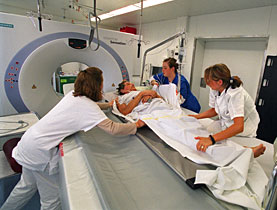
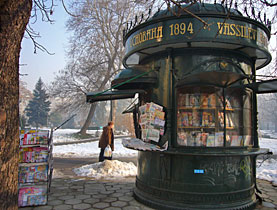
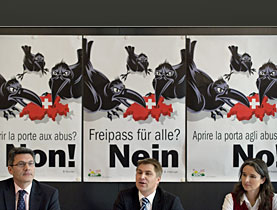
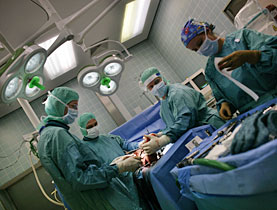
You can find an overview of ongoing debates with our journalists here . Please join us!
If you want to start a conversation about a topic raised in this article or want to report factual errors, email us at english@swissinfo.ch.